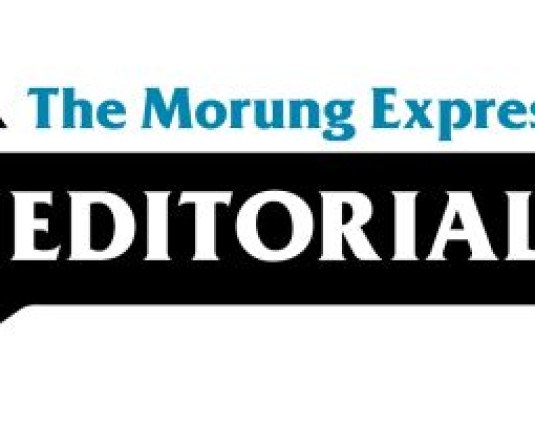
The Panos South Asia-Morung Foundation study tour which began on Saturday last with a series of interactive sessions brought together journalists, researchers and activists on a common platform. The study tour to places such as Kohima, Diphu, Merapani, Geleky, and Tura is a much needed exercise especially for journalists working in the northeast who do not get much of an opportunity to go into the field and report first hand. Such type of initiative needs to be encouraged and sustained overtime in order that the intent behind having such interaction proves beneficial in the long run.
There is no doubt that the quality of reporting that emanates from newspapers in the region needs to improve a great deal. Hopefully for journalists, the reality of actually stepping into a new paradigm will help them to think ‘out of the box’ and allow them to explore and analyze issues from a wider perspective. It is however rather unfortunate that except for one correspondent each from a national and local daily, participation from the other Nagaland based English local dailies has not been forthcoming. As a watchdog of society and taking into account the growing demand of readers for informed and quality news, such a study tour could have been an opportunity to both enhance, a journalist’s overall skill in news gathering and dissemination, besides exploring hitherto unknown insights into every day issues (peace process, ceasefire, border, ethnic conflict, local economy and governance) that newspapers report on a daily basis.
Going through the news section of local dailies it does appear most of us are being confronted by the same problem, the poverty of ideas seeping through newspaper establishments here in Nagaland. Newspapers for that matter find it easier to write and publish news from official sources. It is for this reason that local journalists must be encouraged to go out into the field to get stories that represents the voice of the people and also take the trouble in studying the various dimensions to a particular issue or event. This is not possible by simply sitting in the news-desk and soaking in official statements. There is every possibility that journalists could run the risk of becoming redundant and may end up becoming or working like mere office clerks. When this happens, the very credibility of the media comes into question.
Hopefully, for the few journalists taking part in the tour, they will now be in a position to analyze larger data base without the bureaucratic filters and spins and come out with some breaking news that is centered on people and the stories they represent. Many a times, news itself is misrepresented for want of sufficient and credible information. The challenge really will be on writing news-reports that challenge rather than simply conforming to official statements. It is for this reason that due credit should be given to Panos South Asia and the Morung Foundation for initiating the recent orientation program and the follow-up study tour. Not only will it enhance the level of interaction between the journalist and the researchers-activists but the former will now be in a better position to provide other insights that may not be available through conventional source.





